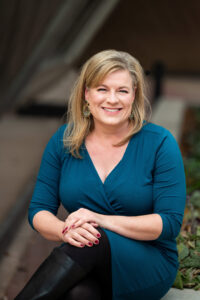I recently had the opportunity to interview Joel Ansett about how his faith informs his work as a singer-songwriter. Our conversation appears below and invites us all to integrate our beliefs into the daily work of our hands.
JM: What’s your professional background? How did you decide to pursue music full time?
JA: My professional background in music consists of diving in and learning as I go. I studied history in college; by my senior year, I had been playing a good amount of shows around campus and writing new songs. The response from friends and classmates was overwhelmingly positive, so I decided to pursue a career as a full-time songwriter/performer.
JM: How would you describe your musical style?
JA: This debut album is a bit of a mixed bag, but the way I've come to describe it is folk-pop with a subtle R&B influence.
JM: What do you hope listeners will experience as they hear your music?
JA: So many things… I hope the listener experiences joy, sorrow, satisfaction, longing, grief, and healing. I think a major part of the beauty of music is that it really does allow you to experience several emotions at once. And beyond that, I think every listener will experience something different depending on their life story, even depending on the type of day they're having.
I'm hesitant to say what I hope the listener will experience because I truly cherish the moments when someone gets something out of a song that I never intended. But broadly speaking, I hope people listen and feel less alone in the struggle that it is to be human, and I hope the music can bring all of us a little closer to home.
JM: What do you think it means to make "good music"?
JA: Hmm, good music. Because lyrics are such a big part of what I do, I think I could better answer what makes a "good song.” I know honesty has a good bit to do with it. Deep, painful honesty — trying to get to the root of things. That's not fun work to try and get to the heart of things, but it's worth it. Bitter in the mouth and sweet in the stomach.
I'd also say great songs are born of diligence and perseverance; diligence in your craft, whether that's guitar playing, drumming, singing, etc., You have to be committed to practicing your craft and becoming excellent at what you do; and then having the perseverance to keep creating, no matter what. I think I'll have to write a whole lot of bad songs before I could ever write a great one, so I really do think half the battle is just persevering.
JM: Tell us about your most recent album... What inspired your songwriting?
JA: It’s called The Nature of Us and I had the opportunity to create it because of an amazingly supportive fan base that raised $25,000 in 30 days. That was last December and I spent the last year writing and recording the songs and now it's finally ready for your ears. The songs are all about identity — Who am I? At the outset, I think we like to escape asking that question by dismissing it as cheesy or trite, but I think the truth is, we're scared to ask that question. And if we ever do get the boldness up to ask it, we're scared to dwell on it for too long. So with this album, I was trying to be brave and ask that question over and over again. It led to some amazing highs and amazing lows. Each song sort of presents a different layer of that identity and while it's obviously not an all-encompassing picture of who we are as humans, I hope it provides some snapshots that bring at least a little clarity to the question.
JM: Like many artists who come from a deep spiritual background, you mentioned that people often push you to write music that's primarily intended for a church context. How have you responded to that pressure?
JA: Hmm, very difficult to answer this briefly. First off, yes, I do have a spiritual upbringing, a Christian one specifically. [Being pushed to write church music] seems to be a problem mainly in Christian circles. I don't ever hear folks talking about a new Buddhist songwriter, or the latest agnostic painter. I think there is an unfortunate and false mental wall that's gone up between what is sacred and what is secular in the world, and thus modern Christians have developed a painfully small view of what makes great art. I guess I have responded to that pressure by writing without that wall in mind. Everything is sacred; from my morning coffee, to conversations with an insurance agent, to aspen trees on a mountainside.
JM: How can a person of faith honor God with their musical gifts when they write and perform for mainstream audiences?
JA: Simply by writing with sincerity and performing with excellence.

